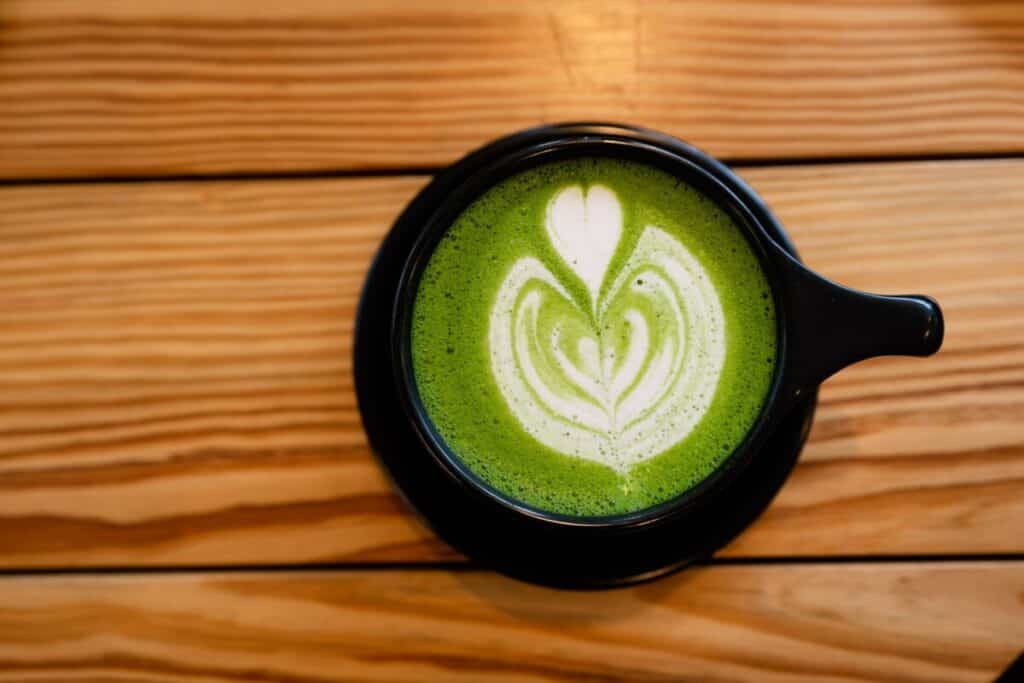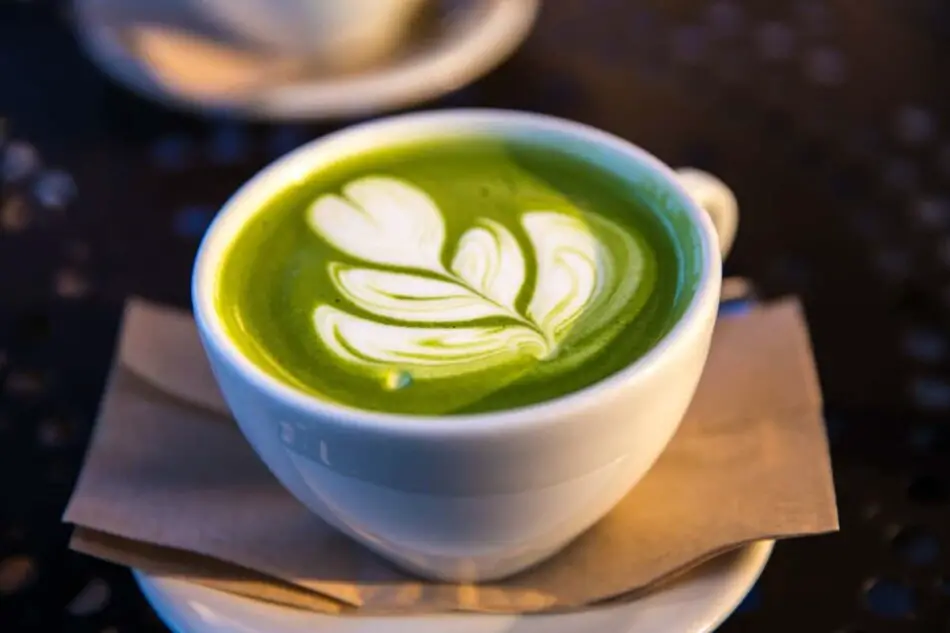If you’re like most people, you’ve probably heard of matcha green tea but you keep wondering what does matcha green tea taste like? Matcha is a type of green tea that is made from ground-up tea leaves. It has a unique flavor and contains high levels of antioxidants. In this blog post, I will discuss the taste, health benefits of matcha green tea, and how to prepare a tasty one.
Matcha green tea has a unique, slightly grassy taste that can be hard to describe. Some people say it tastes like spinach, while others find it earthy or vegetal. The flavor of matcha is also influenced by the quality of the leaves and how they are processed. Ceremonial-grade matcha made from young shade-grown leaves will have a sweeter, more delicate flavor than culinary-grade matcha made from older sun-grown leaves.
If you’ve never tried matcha before, it’s best to start with a small amount to see how you like it. Many people enjoy drinking matcha plain, without adding any sweeteners or other flavors. However, if you find the taste too strong or bitter, you can try adding a little honey or sugar. You can also mix matcha with milk to make a latte, or add it to smoothies or other recipes. Experiment until you find a way of enjoying matcha that suits your taste buds!
Texture And Consistency
The texture and consistency of green matcha tea can be quite different from other teas. This is because the powder is much finer than regular tea leaves. As a result, it dissolves more easily in water and has a smoother texture. The consistency of green matcha tea can also be affected by how it is prepared. For example, if you use more powder, the tea will be thicker. If you use less powder, the tea will be thinner.

Factors That Affect The Taste Of Matcha
There are many different grades of matcha, from ceremonial grade to culinary grade. The ceremonial grade is the highest quality and best tasting, while the culinary grade is lower quality and less expensive. The grind size of the matcha powder also affects its taste. Finely ground matcha will have a more intense flavor, while coarser grades will be more mellow.
Water temperature is another important factor in brewing matcha. If the water is too hot, it will make the matcha bitter. On the other hand, if the water is too cold, the tea will be weak and lack flavor.
Finally, how long the matcha is brewed for also has an impact on its flavor. If brewed for too long, matcha can become bitter. However, if brewed for too short a time, the tea will be weak and lack flavor.
Brewing is an art, and by following these simple tips, you can make a delicious cup of tea every time. Experiment with different ratios of water to matcha powder and brewing times to find what works best for you. And don’t forget to enjoy the company of your friends while you drink it!
Health Benefits Of Matcha Tea
Matcha has been used in traditional Chinese and Japanese medicine for centuries and has only recently gained popularity in the Western world. Here are some of the benefits.
- Matcha is rich in antioxidants, which can neutralize free radicals and prevent cell damage. Studies have shown that matcha may help to protect against cancer, heart disease, and stroke.
- Matcha also contains high levels of catechins, which are compounds that can boost metabolism and promote weight loss.
- Matcha tea can also improve mental alertness and concentration. The combination of caffeine and L-theanine, an amino acid found in matcha, can increase alpha brain waves, which are associated with relaxation and focus. Matcha has also been shown to improve memory and reaction time.
How To Make Matcha Green Tea
You will need:
- Matcha powder
- Hot water
- A bowl and spoon (or a teapot and strainer)
- Milk or sweetener (optional)
Steps
Now that you know the basics of matcha, let’s get into how to make it! Matcha green tea is simple to make, but there are a few key steps to follow to make a perfect cup. Here are the five basic steps:
- First, sift your matcha powder. This step is important to get rid of any clumps and ensure a smooth texture.
- Next, add hot water to your cup or teapot. You’ll want to use around 190-degrees Fahrenheit water, or just before boiling.
- Then, using a bamboo whisk (or electric frother), mix the matcha and water until it forms a smooth paste. Be sure not to over-mix, as this can make the tea bitter.
- Now it’s time to add more hot water and continue whisking until you have a frothy cup of matcha green tea. If you want a sweeter cup, you can add a bit of honey or agave nectar at this point.
- Finally, enjoy your delicious cup of matcha! Make sure to savor the unique flavor and take in the many health benefits that this powerful tea has to offer.
How To Store Matcha Green Tea
When it comes to tea, there are different ways to store it. For example, black teas should be stored in a cool, dark place, whereas green teas should be stored in a cool, dry place. When it comes to matcha green tea specifically, there are a few things you should keep in mind.
Here are a few tips on how to store matcha green tea:
- Keep it in an airtight container: This will help keep the matcha powder from clumping together and going bad.
- Store it in a cool, dry place: As mentioned above, green teas should be stored in a cool, dry place. This will help keep the matcha powder fresh for longer.
- Keep it away from light: Light can cause the matcha powder to lose its color and flavor. So, it’s best to store it in a dark place.
By following these tips, you’ll be able to store your matcha green tea properly and enjoy the great taste for a long time!
Bottom Line
Matcha green tea has a unique taste that can be described as earthy, grassy, and slightly sweet. When made correctly, matcha green tea has a smooth texture and rich flavor that is truly enjoyable.
Whether you are new to matcha or have been drinking it for years, there is no doubt that it is a special beverage worth savoring. Thanks for reading and I hope you enjoy your next cup of matcha!

